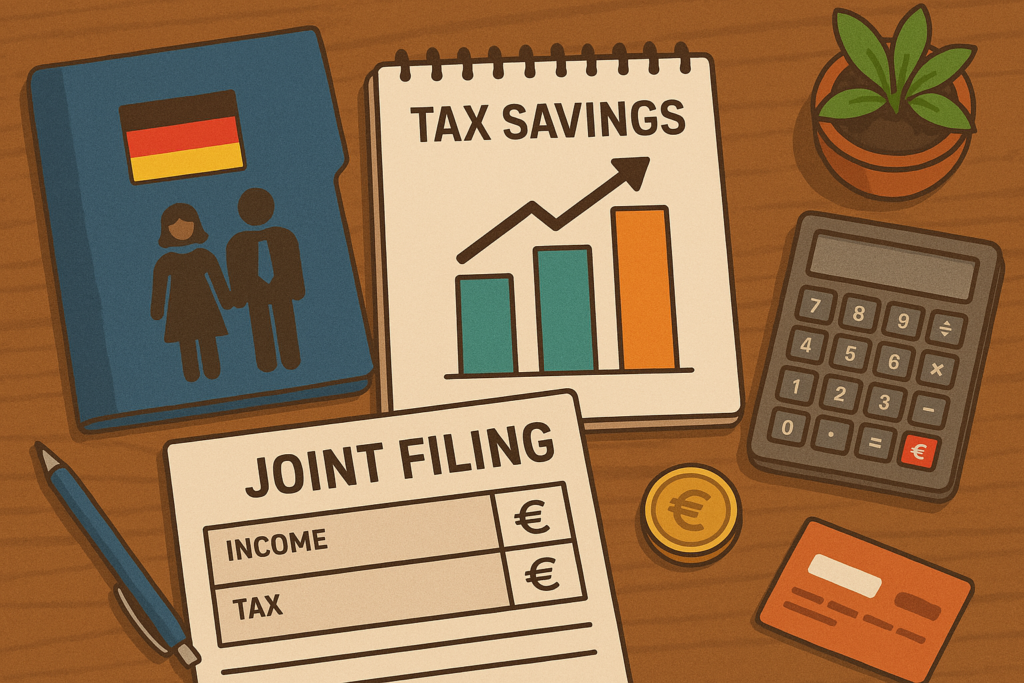Germany’s tax system can seem complicated at first, especially for foreigners who are not familiar with local regulations.
But with the 2025 updates to the German tax system, it’s more important than ever to understand your obligations.
This tax guide for expats in Germany, whether you’re a freelancer, employee, or international student, covers everything you need to stay compliant and make the most of your finances.
Who Needs to Pay Taxes in Germany?
If you live in Germany for more than 183 days in a year, you’re generally considered a tax resident.
This means you’re required to pay income tax on your global earnings, not just income from German sources.
Foreigners living in Germany temporarily but earning German-sourced income may also be subject to limited tax liability.
You also need to register your address with the local authorities (Anmeldung), which is a key step in becoming part of the German tax system.
Are you married and living in Germany? Learn how you can reduce your taxes with joint filing and income splitting.
See our dedicated guide for married expats in Germany
What Taxes Do You Have to Pay in Germany as a Foreigner?
If you are a tax resident in Germany, you must report and pay taxes on your worldwide income. That includes:
- Salary from a German or international employer
- Freelance or business income
- Rental income, local or abroad
- Foreign dividends and bank interest
- Pensions from abroad
- Crypto and capital gains
- Large gifts or inheritance from another country
Income Tax Rates in 2025
Understanding the current tax brackets helps you plan your finances more effectively.
For 2025, Germany’s income tax rates are as follows:
| Income Range (€) | Tax Rate | Notes |
|---|---|---|
| Up to €11,604 | 0% | Basic tax-free allowance |
| €11,605 – €62,810 | 14% – 42% | Progressive rate |
| €62,811 – €277,825 | 42% | High-income bracket |
| Above €277,825 | 45% | Wealth tax rate (Reichensteuer) |
In addition to income tax, you may owe:
- Solidarity surcharge: 5.5% of your income tax (only if you’re above a certain threshold)
- Church tax: 8–9%, only if you’re registered with a religious group
- Health and social security contributions: Mandatory for employees and the self-employed, calculated separately from income tax
Tip: Even if you’re below the tax threshold, file your tax return, many foreigners are eligible for refunds.
Understanding Tax Classes (Steuerklassen)
| Tax Class | Who It’s For | Description |
|---|---|---|
| I | Single individuals | Standard tax rate for individuals |
| II | Single parents | Offers additional allowance for dependents |
| III | Married (main earner) | Favourable for couples with one higher earner |
| IV | Married (similar income) | Balanced deduction for both earners |
| V | Married (secondary earner) | Paired with Class III; higher withholding |
| VI | Multiple jobs | Highest withholding; used for second jobs |
Tax ID vs. Tax Number: What’s the Difference?
- Tax Identification Number (Identifikationsnummer): A unique number issued once per lifetime, used for personal tax purposes.
- Tax Number (Steuernummer): Issued by your local tax office and used for filing tax returns. You may get a new one if you move to another region.
Do You Need to Declare Foreign Income in Germany?
Yes. As a tax resident, you’re legally required to declare all foreign income, even if it’s already been taxed in your home country.
Examples include:
- Renting out a flat in the Philippines
- Receiving dividends from US stocks
- Receiving €20,000 from family as a gift
- Having a pension from India or the UK
Germany has over 90 Double Taxation Agreements to avoid double taxation. However, the process isn’t automatic. You must:
- Complete the correct forms
- Attach documentation of tax paid abroad
- Have documents translated and legalised, if necessary
Failure to report foreign income is considered tax evasion and may result in penalties, back taxes, or legal consequences.
Pro tip: If you’ve paid tax abroad, you can often offset it in Germany, but only with proper documentation.
International Transfers and Tax Implications
- Gifts over €20,000 may be subject to gift tax, depending on relationship and amount
- Income such as salary or freelancing must be declared and taxed
- Inheritance must be reported under inheritance tax laws with varying thresholds
Solution: Keep written explanations for large transfers (e.g., bank statements, gift letters, inheritance certificates) to protect yourself during an audit.
Filing Your Tax Return in Germany: Step-by-Step
- Collect your documents: income statements, foreign income records, receipts
- Choose your method:
- ELSTER: Official government portal (German only)
- Taxfix or Wundertax: Easier options in English
- Tax advisor (Steuerberater): Recommended for complex cases
- Check your tax class and adjust if needed
- Claim deductions: Health insurance, moving costs, home office, professional equipment
- Submit by 31 July, or by February next year if using an advisor
Common Deductions for Foreigners
- Work-related expenses (commuting, home office)
- Health and long-term care insurance
- Language courses
- Relocation costs
- Contributions to foreign pensions
- Tax advice fees
- Dual household expenses
Example Scenario: Taxation for an Expat Employee
Let’s say Ana, a software developer from Brazil, moved to Berlin in early 2025. She earns €60,000 per year and is single.
Based on her income, she falls into the progressive tax bracket with a maximum marginal rate of 42%.
Ana registers with the local authority, receives Tax Class I, and files her first return the following year.
She deducts her relocation costs, German language courses, and home office setup.
Result: Ana receives a refund of over €1,200, a significant saving from knowing how to navigate the system.
Tips for Staying Compliant and Saving Money
- Register your address (Anmeldung) promptly
- Know your tax class and adjust it if your situation changes
- Keep clear records of all income and expenses
- File your tax return even if it’s not required, many foreigners get refunds
- Use tools to simulate taxes before filing
- Ask for help from professionals if unsure
Final Thoughts: Navigating German Taxes as a Foreigner in 2025
Paying taxes in Germany as a foreigner doesn’t have to be overwhelming. By understanding the basics of income tax,
Choosing the correct tax class, and making use of deductions, you can comply with local laws and avoid overpaying.
In 2025, staying informed and proactive is your best strategy. Use online tools, simulate different filing scenarios, and don’t hesitate to seek professional help.
With the right approach, you’ll not only stay compliant, you may also save a good amount of money.

